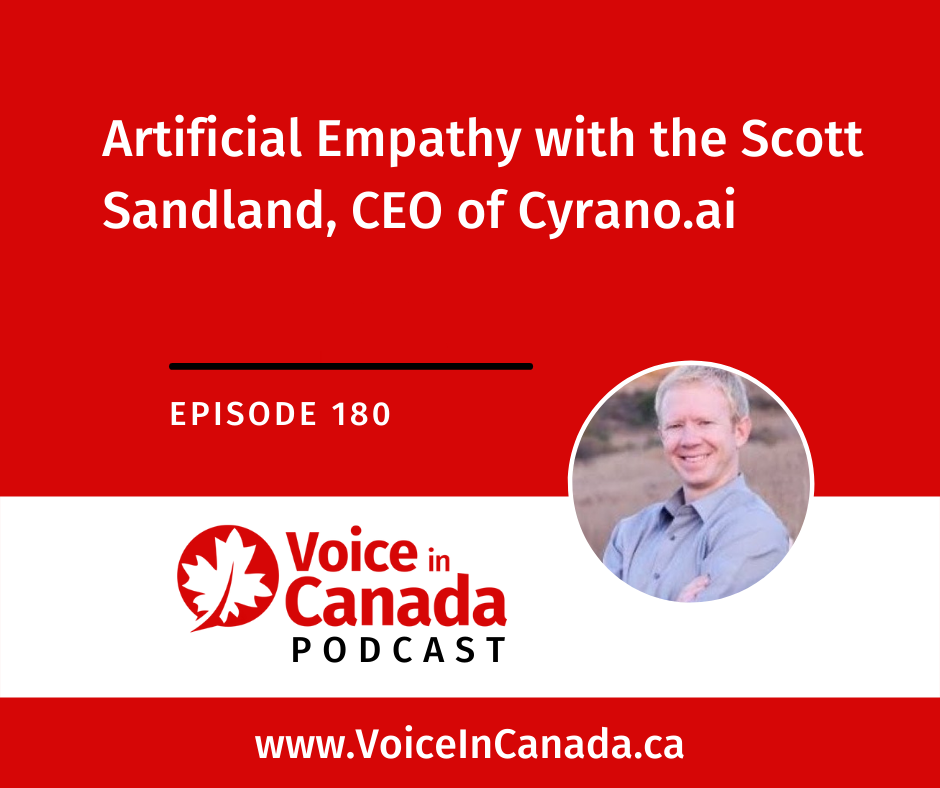AiC Episode 135
In this episode, Teri welcomes James Vlahos, Founder and CEO at HereAfter, a company that uses conversational AI to help people save and interactively share life stories so that they never have to lose the voices of people they love.
Welcome, James!
HereAfter is an AI platform designed to allow people to have spoken “conversations” with loved ones who have passed away, based on voice recordings taken while they are still alive. The conversations are made possible by platforms like Amazon Alexa. James is also the creator of DADBOT, a veteran tech journalist for The New York Times, and author of “Talk to Me: How Voice Computing Will Transform the Way We Live, Work, and Think” His book addresses the economic, cultural, and psychological impact of conversational AI and how it’s altering our traditional perception of human consciousness.
His Tech Journalism
- He wrote about diverse technology-oriented topics, from the HyperLoop to businesses using smell to lure customers into making purchases.
- From 2015, he developed an interest in Siri and Alexa because he was fascinated by the fact that what we had been learning from science fiction about personified beings who could have conversations with us was actually becoming a reality.
- He wanted to write about the two voice assistants but ended up approaching it from a different angle, instead of writing about how Hello Barbie was created by a company called PullString. PullString was acquired by Apple.
- For him, writing about that was a great way to get into how to create a dialogue system and teach a computer how to talk. It led him deeper into voice technology.
Writing His Book
- When he did the Hello Barbie project, he could see that it was just the tip of the iceberg, and he could see that Amazon, Apple, and Google were battling each other in the voice technology race, and so he knew there was great potential in the space.
- He realized he couldn’t just fit everything about voice technology into an article so he decided to put it in a book.

HereAfter
- He was inspired to create it when his late father was diagnosed with terminal lung cancer and had a few months to live.
- James did a conventional oral history project with his father, recording him talking all about his life. He got hours of recordings and had them professionally transcribed.
- Around the same time, he was involved in conversational AI while researching for his book, and he realized that voice technology was a new way to share those recordings of his father in such a way that he could somehow hold on to him even after he had passed way.
- He created a conversational app that could be accessed on Facebook Messenger. One could create messages on the app and get audio/video clips from it. He called it the DADBOT.
- DADBOT has been the basis for everything he has worked on and created ever since.
- They are working on making HereAfter a scalable technology that anyone can use. They are on Amazon Alexa exclusively and expect to be on Google Assistant soon.
- They have received mixed feedback from the market. For example, most people want to wait before they record their memories, almost like how people always put off writing a will.
Signing Up on HereAfter
- One starts by signing up for the service, after which they are orally interviewed by someone in the company.
- The company then records the person’s life story in a very structured manner with the end product in mind.
- The audio is then edited and put into the HereAfter system so that when an end-user asks a question about that person via Alexa, they hear that person’s voice answering them from the actual recording of that person.
- They are currently developing an app that will do the interviewing.
- HereAfter has positively impacted families and enabled them to capture the life stories of their loved ones for the benefit of their present and future family members.
Remembrance Versus Replication
- Science fiction movies like HER show us a world where people can have relationships with AI beings on their phones and other devices, which brings up the question of whether we could possibly continue relationships with loved ones who have passed away through technologies like HereAfter.
- James reiterates that HereAfter is just an advanced tool for remembrance rather than for replication.
Thanks to our Sponsor:
VOCALiD is a breakthrough Voice AI solution company that combines state-of-the-art speech synthesis technology with advanced audio processing to create custom designed voices. Amplify and extend the reach of your messaging by augmenting your current voice solution with the robust always-on power of custom synthetic voice.
List of resources mentioned in this episode:
- HereAfter Website
- James on Linkedin
- The Comprehensive Flash Briefing Formula Course
- The Voice Den
- VocalID.ai
Other Useful Resources:
- Voice in Canada: The Flash Briefing
- Complete List of Alexa Commands
- Alexa-Enabled and Controlled Devices in Canada
- Teri Fisher on Twitter
- Alexa in Canada on Twitter
- Alexa in Canada Facebook Page
- Alexa in Canada Community Group on Facebook
- Alexa in Canada on Instagram
- Please leave a review on iTunes
- Shopping on Amazon.ca












![Celene Osiecka of [24]7 on the Voice in Canada Podcast](https://voiceincanada.ca/wp-content/uploads/2021/10/Celene-Osiecka-of-247-on-the-Voice-in-Canada-Podcast-1.jpg)